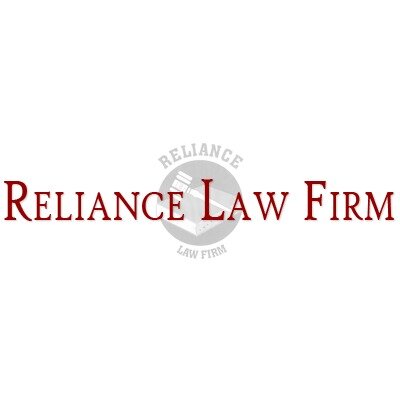Best Energy Regulatory Law Lawyers in Nepal
Share your needs with us, get contacted by law firms.
Free. Takes 2 min.
Or refine your search by selecting a city:
List of the best lawyers in Nepal
About Energy Regulatory Law in Nepal
Energy Regulatory Law in Nepal covers the legal framework governing the generation, transmission, distribution, and usage of energy resources, particularly electricity. The main focus is on ensuring fair access to energy, environmental protection, investment promotion, transparent pricing, and the regulation of both public and private sector stakeholders. Nepal’s energy sector is vital due to its rich hydropower potential and the government’s commitment to sustainable energy development. Regulatory oversight ensures that projects comply with legal standards, licenses are properly issued, and consumer rights are protected.
Why You May Need a Lawyer
Legal advice in Energy Regulatory Law is important for individuals and entities navigating the complex regulatory environment. Common scenarios where legal assistance is recommended include:
- Obtaining or renewing licenses for electricity generation, transmission, or distribution
- Drafting and reviewing power purchase agreements (PPAs)
- Complying with environmental and safety regulations related to energy projects
- Resolving disputes with regulatory bodies, government agencies, or other project stakeholders
- Dealing with issues related to tariffs, rates, or consumer complaints
- Assisting with foreign investment or joint ventures in the energy sector
- Navigating the approval process for hydropower projects and land acquisition
- Handling violations, penalties, or compliance audits by regulatory authorities
Given the technicalities and frequent changes in energy sector policies and regulations, a qualified lawyer can help ensure compliance, protect interests, and avoid legal pitfalls.
Local Laws Overview
Nepal’s energy sector is primarily governed by the Electricity Act 1992, the Nepal Electricity Regulatory Commission Act 2017, and related regulations. The major regulatory authority is the Nepal Electricity Regulatory Commission (NERC), which is responsible for licensing, tariff setting, and ensuring transparency in the sector. Key aspects include:
- Mandatory licensing for energy generation, distribution, or transmission projects
- Government oversight of all electricity tariffs and rates to protect consumers
- Strict rules for foreign investment and public-private partnerships in the energy sector
- Environmental clearance required prior to project commencement
- Consumer protection and rights to file complaints over pricing or service quality
- Priority for renewable and sustainable energy projects, especially hydropower and solar energy
- Mandatory compliance with land acquisition, relocation, and compensation standards
Local regulations are updated to address emerging challenges, including grid expansion, rural electrification, and cross-border electricity trade. Familiarity with these laws is crucial for successful engagement in Nepal’s energy sector.
Frequently Asked Questions
What is the role of the Nepal Electricity Regulatory Commission (NERC)?
The NERC regulates, supervises, and monitors all activities related to the electricity sector in Nepal. Its main functions include issuing licenses, setting tariffs, resolving disputes, and ensuring quality and safety standards.
Who needs to obtain a license under Nepal’s Energy Regulatory Law?
Anyone seeking to generate, transmit, or distribute electricity commercially in Nepal must obtain a license from the relevant authority, typically the NERC.
What are the main laws regulating energy in Nepal?
The Electricity Act 1992, Nepal Electricity Regulatory Commission Act 2017, and several supporting guidelines and regulations shape Nepal’s energy law landscape.
Can foreign companies invest in Nepal’s energy sector?
Yes, foreign investment is permitted, particularly in hydropower projects, but requires compliance with foreign investment laws and approval from multiple agencies.
What is a Power Purchase Agreement (PPA) and why is it important?
A PPA is a contract between an energy producer and a purchaser, typically the Nepal Electricity Authority, laying out the terms for buying and selling electricity. It is key for project financing and viability.
What are the main compliance requirements for renewable energy projects?
Projects must satisfy environmental impact assessments, adhere to safety and technical standards, and obtain the necessary licenses and clearances before operation.
Is cross-border electricity trade allowed in Nepal?
Yes, cross-border trading is permitted under government agreements, primarily with neighboring countries like India, but requires special approvals and compliance with trade regulations.
What should I do if I have a dispute regarding energy tariffs or services?
Disputes can be addressed directly to the NERC, which has established procedures for the resolution of complaints and grievances.
Are there incentives for renewable energy development in Nepal?
Yes, the government offers various incentives, including tax concessions, subsidies, and preferential licensing procedures to promote renewable energy investments.
How can consumers complain about service or pricing issues?
Consumers can submit complaints to the NERC or their local electricity provider. The regulatory body is required to address such complaints within defined timeframes.
Additional Resources
Several governmental and non-governmental organizations provide support and information related to Energy Regulatory Law in Nepal, including:
- Nepal Electricity Regulatory Commission (NERC)
- Ministry of Energy, Water Resources and Irrigation
- Nepal Electricity Authority
- Alternative Energy Promotion Centre
- Department of Electricity Development
- Independent Power Producers’ Association, Nepal (IPPAN)
These organizations offer guidance on regulations, licensing procedures, investment opportunities, and consumer rights.
Next Steps
If you need legal assistance related to Energy Regulatory Law in Nepal, start by clearly defining your concern or objective. Collect all relevant documents, such as licenses, contracts, or correspondence with authorities. Consult a qualified legal professional who specializes in energy law or has experience dealing with regulatory bodies in Nepal. Arrange an initial consultation to discuss your situation. Additionally, you may contact relevant government offices or industry associations for more information or to seek recommendations for specialist lawyers. Acting early and engaging the right professional can help streamline compliance, resolve disputes, and protect your interests in Nepal’s growing energy sector.
Lawzana helps you find the best lawyers and law firms in Nepal through a curated and pre-screened list of qualified legal professionals. Our platform offers rankings and detailed profiles of attorneys and law firms, allowing you to compare based on practice areas, including Energy Regulatory Law, experience, and client feedback.
Each profile includes a description of the firm's areas of practice, client reviews, team members and partners, year of establishment, spoken languages, office locations, contact information, social media presence, and any published articles or resources. Most firms on our platform speak English and are experienced in both local and international legal matters.
Get a quote from top-rated law firms in Nepal — quickly, securely, and without unnecessary hassle.
Disclaimer:
The information provided on this page is for general informational purposes only and does not constitute legal advice. While we strive to ensure the accuracy and relevance of the content, legal information may change over time, and interpretations of the law can vary. You should always consult with a qualified legal professional for advice specific to your situation.
We disclaim all liability for actions taken or not taken based on the content of this page. If you believe any information is incorrect or outdated, please contact us, and we will review and update it where appropriate.
Browse energy regulatory law law firms by city in Nepal
Refine your search by selecting a city.

















